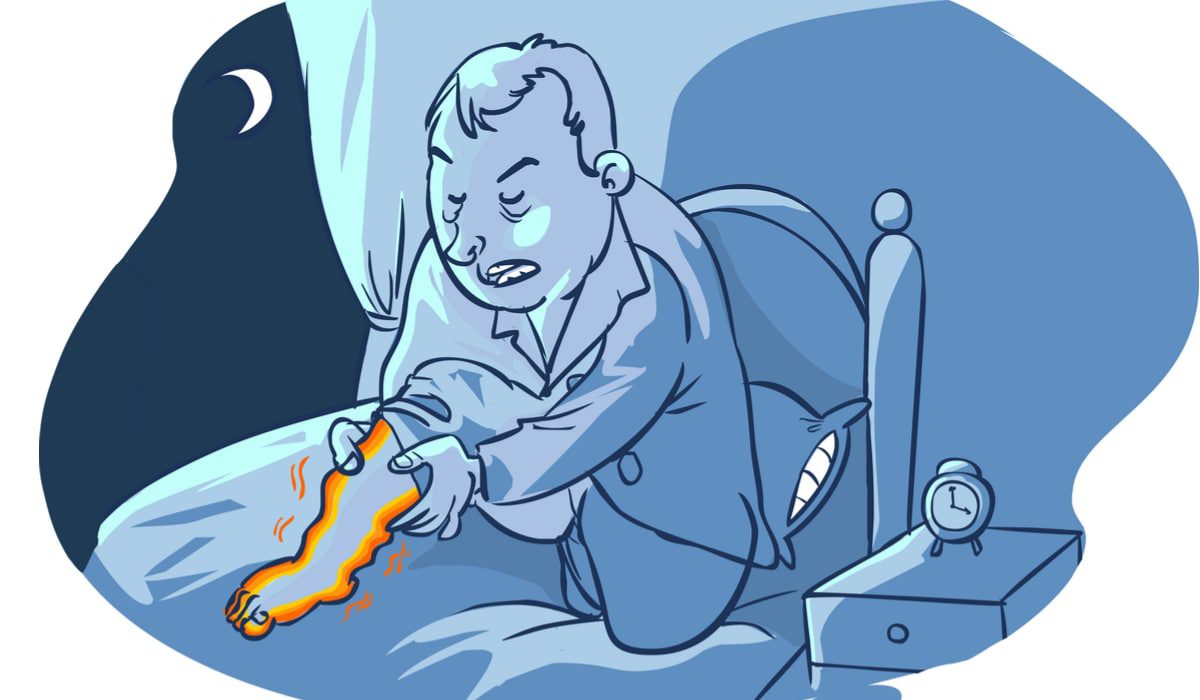

According to Mayo Clinic, restless leg syndrome (RLS) is the uncontrollable need to move your legs, usually caused by inactivity. Also known as Willis-Ekbom disease, it typically happens in the evenings, often while sleeping. RLS is also associated with another condition called periodic limb movement of sleep (PLMS). This is the involuntary moving or twitching of the legs, usually while asleep.
RLS and PLMS negatively impact sleep quality by disturbing the sleep-wake cycle. It can also impact the amount of REM (rapid-eye-movement) sleep. REM sleep is key to being well-rested and is part of the sleep cycle when the brain is regenerating neurotransmitters.
CBD and Sleep
CB1 receptors of the endocannabinoid system (ECS) may impact different aspects of the sleep cycle and our ability to fall asleep. Since there are different ways that THC and CBD interact with the ECS, the information on how cannabis impacts our sleep is variable. Previous studies looked at the impacts of THC on sleep, and there are limited studies on the impact of CBD on sleep. Studies on other cannabinoids (such as CBG, CBC, THCa, THCV) and sleep are non-existent. CBN was touted as a sleep aid by certain cannabis companies but there is currently insufficient evidence to support that theory.
CBD is being marketed as a sleep aid. Limited studies support this. Research has shown that CBD may help increase total sleep as well as speed up how long it takes to fall asleep and get into REM.
As it relates to RLS, some studies found complete remission of RLS by cannabis consumers. However, this was not specific to CBD. Another study revealed that 60 per cent of subjects reported an improvement in sleep-related medical conditions, including RLS, from medical cannabis; once again, not just CBD.
More Research Required
At this point, most studies are providing different results due to whether or not CBD is beneficial for sleep or increases wakefulness. This is largely because these studies are not controlling the type of CBD being consumed. Cannabis comes in various cultivars, and the cultivar producing the CBD certainly impacts its effect on sleep.
Since every individual’s ECS is unique, how one person reacts to specific cannabinoids and the ability to fall asleep is often different from the next person. There are also impacts based on cultivars consumed, and the types of terpenes present that can impact sleep quality, anxiety, and sleep disorders such as RLS. More research needs to be done to assess the impacts of CBD on sleep and sleep-related issues like RLS and PLMS.
Subscribe to get the latest posts sent to your email.

Copyright © 2025 My Way CBD - All Rights Reserved.




Demo Description
Introducing your First Popup.
Customize text and design to perfectly suit your needs and preferences.
This will close in 20 seconds
We are currently experiencing issues with our payment provider, please try again later.
This will close in 20 seconds
Click below to chat on WhatsApp